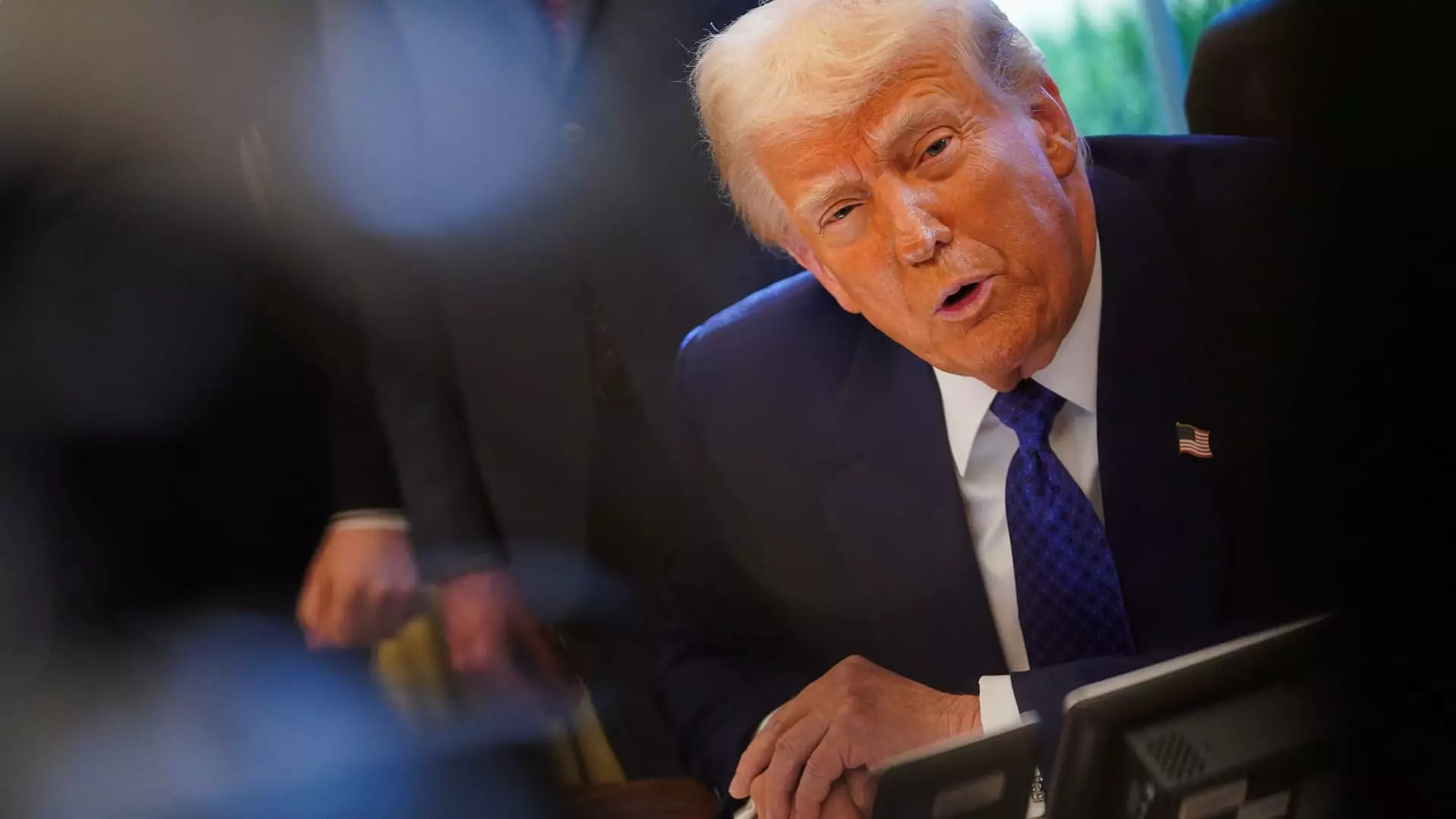The ongoing conflict in Ukraine has raised numerous foreign policy challenges for the United States, particularly under the recent influence of the Trump administration. In a controversial overture, U.S. officials have signaled the possibility of the United States taking a significant stake—specifically, 50% ownership—in Ukraine’s valuable rare earth minerals. This proposition suggests a strategic approach by the U.S. not just for economic benefits, but also as a mechanism to cover the extensive military support extended to Ukraine since the outset of the war in February 2022. Such developments underline the shifting paradigms of international alliances and the tactical maneuvers that define modern geopolitics.
Rare earth minerals are critical components in contemporary technology, integral to the production of everything from smartphones to advanced military equipment. The U.S. has long been disadvantaged in this segment of the global supply chain, often relying on imports from other countries, particularly China. The proposed arrangement of U.S. ownership over a portion of Ukraine’s resources would serve as a strategic measure to bolster American access to these essential materials while simultaneously positioning Ukraine as a more significant player on the global economic stage.
Treasury Secretary Scott Bessent’s draft proposal to Ukrainian President Volodymyr Zelenskyy, which suggested the ownership arrangement as a means of repayment for U.S. military aid, admittedly raises eyebrows. By shifting the burden of support onto the Ukrainian economy, the U.S. may be trying to ensure its investment yields tangible returns amid fluctuating commitments to foreign aid, especially as domestic political pressures mount.
Bessent’s presentation of the ownership agreement did not only focus on economic reparations; it included a potential military dimension. Reports indicate a willingness on the part of the Trump administration to contemplate the stationing of American troops in Ukraine to secure the mineral resources—a significant shift from prior assertions that U.S. forces would not be deployed in the conflict. Defense Secretary Pete Hegseth’s comments reiterating this diversification of military involvement reflect a broader strategy that could align American troops with Ukrainian interests, albeit under contentious circumstances.
President Trump has previously voiced openness to military options in the context of the Ukraine crisis, framing U.S. participation as a necessary signal to Russia that any agreements reached on ending hostilities must be pursued genuinely. Such a posture not only complicates the narrative surrounding U.S. involvement—or rather, non-involvement—in the conflict but also raises questions about the motivations behind this perceived pivot in strategy.
President Zelenskyy finds himself in a precarious position, straddling the line between welcoming U.S. backing and defending his nation’s sovereignty. During a recent security conference, Zelenskyy articulated his acknowledgement of Ukraine’s dependency on American military support while expressing reservations about the proposed mineral ownership deal. The situation reveals the tension inherent in the international power dynamics, wherein small nations must often negotiate their sovereignty against the backdrop of larger geopolitical interests.
By indicating that his legal team needs to thoroughly assess the implications of the proposal, Zelenskyy highlights the importance of a cautious approach to agreements that could have long-lasting ramifications for Ukraine’s autonomy. His attempt to label the document as a memorandum implies a desire for flexibility and a nuanced interpretation of U.S. intentions.
The complexities of U.S.-Ukraine relations amidst the ongoing war with Russia demonstrate how geopolitical and economic considerations can intertwine with military strategy. As the Trump administration explores unprecedented avenues for securing vital resources and military cooperation, the potential for significant shifts in Ukraine’s operational landscape looms large.
While strategic ownership of rare earth minerals may afford both countries certain benefits, it also necessitates a careful evaluation of sovereignty and the long-term implications of foreign military presence. Ultimately, the balancing act will require deft diplomacy and a recognition that the path forward must preserve the integrity and independence of Ukraine while navigating the intricate web of international relations. As this situation unfolds, it is essential to remain vigilant and critically aware of the motives driving these high-stakes negotiations.


Leave a Reply